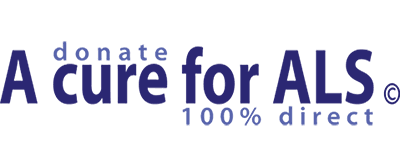C52 Supporting MND family carers from diagnosis to bereavement: the palliative approach to care
27-11-2019
MNDA SYMPOSIUM PERTH DEC19 PRESENTATIONS
Session 5B Carer and family support
Samar Aoun, Australia
Background: The neurologists and other doctors just don’t understand the needs of the patient’s partner in order that he (or she) is better able to cope and provide support!!.” (quote from a family carer)
Family carers have a central role in the care and support of people with MND (PwMND), yet they face challenges from diagnosis to bereavement with multiple losses inflicted during their caregiving experience. They may experience a range of physical and psychological concerns and impairments in quality of life and social contacts. The economic disadvantage on families supporting PwMND in Australia has been estimated to be 54% of the total economic costs. Yet their support needs are often neglected because the focus of the services is primarily on the patients and some carers are dubbed the ‘hidden’ patients.
This presentation describes a number of evidence-based initiatives from diagnosis to bereavement, that need to be implemented or bolstered in standard practice in order to improve the health and social wellbeing of family carers.
Starting with receiving the bad news of the diagnosis described as being “hit between the eyes”, an Australian survey has revealed the most important aspects to reduce the reported 36% dissatisfaction rate of family carers when receiving the diagnosis.
To ameliorate some of the negative effects of caregiving, a supportive intervention has highlighted and addressed priorities for support that are directly related to the MND carers’ wellbeing. This carer-centred approach has allowed the opportunity to systematically hold conversations about the practical, psychological, spiritual, and existential needs of carers in supporting their care recipients and also helping themselves.
The role of MND associations is vital in advocating and supporting the practical and emotional wellbeing of family carers and helping them navigate the complex health and community care systems “Prior to their contact I was "in the dark" as to what to do; who to contact”. A recent evaluation assessed the impact of such a community-based model of care for MND.
Adopting a palliative approach to care aids end of life decision making by supporting early conversations with PwMND and their family carers about their needs and preferences, their wellbeing and goals of care and anticipatory planning. In addition, palliative care knowledge and expertise needs to be extended beyond the domain of specialist palliative care services to include the full scope of health and community-based services providing care. The presentation will highlight the benefits of a current educational program in Western Australia.
With bereavement support being the poor cousin of palliative care, recent findings from a national bereavement survey endorsed social models of bereavement care that fit within a public health approach rather than relying solely on professional care. The presentation will elaborate on how social networks can support MND family carers in their communities.
Finally, the promotion of a collaborative approach between service providers and family carers is at the heart of a person-centred approach to care and family carers expressed needs for being acknowledged as a fundamental member of the MND care triad.
Source: Abstract Book symposium Perth


